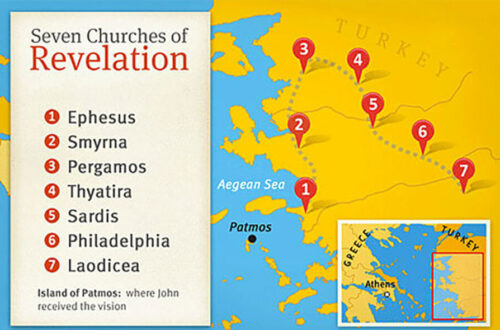Jesus and a future, second exodus
Next week, I begin a new semester of teaching an MDiv class on the four Gospels. In addition to covering mundane, introductory information in the syllabus, I plan to discuss at length the connection between Jesus and a future, second exodus. The following is a synopsis of my presentation:
Israel’s exodus, or departure from Egypt, is one example from the Old Testament of a major salvation-historical event that thematically reverberates throughout the Gospels. Worth considering is the opening chapter to Mark’s Gospel, where the narrative introduces the ministry of John the Baptizer by quoting from Malachi 3:1 and Isaiah 40:3. These Old Testament passages foretell the fulfillment of a future, second exodus.
Matthew’s Gospel is even more explicit in drawing attention to the exodus event as a literary motif with profound theological significance. Specifically, the first Synoptic Gospel makes a tight connection between Jesus of Nazareth and the Exodus. Matthew shows how Jesus’ life and ministry reflect the particulars of the exodus event.
For instance, in chapter 2, the narrative records how an angel of the Lord directs Joseph to take Mary and Jesus down to Egypt in order to escape Herod’s machinations. Then, after Herod’s death, an angel directs Joseph to bring Mary and Jesus back to Israel. Verse 15 says that what transpired fulfilled Hosea 11:1, “Out of Egypt I called my son.”
The beginning of Jesus’ public ministry further highlights His fulfillment of a future, prophesied exodus for the people of God. For instance, John’s baptism of Jesus (recorded in Matt. 3) is analogous to Israel’s crossing of the Red Sea. Even Paul, in 1 Corinthians 10, equates the Israelites’ Red Sea crossing with a kind of baptism.
Jesus’ baptism is followed by His time of testing in the wilderness for 40 days and 40 nights (recorded in Matt. 4). This is parallel to Israel’s 40 years of wandering in the wilderness. Like the Israelites, Jesus experiences the same sorts of temptations, though in His case, He remains absolutely sinless.
When the devil tries to get Jesus to transgress, He quotes three times from Deuteronomy. This book is the record of Moses’ final sermon to the second generation of Israelites on the plains of Moab before they enter the promised land. Jesus shows Himself to be the true Israel, as well as the obedient Son of God, over against the rebellious children of God in the wilderness.
Next, Jesus chooses 12 disciples. Jesus selects this specific number because it is reminiscent of the 12 tribes of Israel. The implication is that Jesus creates a new people of God.
Additional parallels in the first Synoptic Gospel reinforce the truth that Jesus is the fulfillment of the second exodus, an unparalleled salvation-historical event. In particular, Matthew 5–7 recounts Jesus going up a mountainside to teach about the law of God. This is analogous to God giving the law to Israel (through Moses) on Mount Sinai.
Similarly, Jesus’ feeding of the 5,000 and 3,000 (Matt, 14 and 15, respectively) parallels God’s provision of manna to the Israelites in the wilderness (see also John 6). Likewise, Jesus’ transfiguration on a high mountain involves His conversation with Moses (Israel’s great lawgiver) and Elijah (Israel’s famed prophet; Matt. 17).
Incidentally, Luke 9:31 says the three spoke about Jesus’ “departure,” which renders the Greek noun exodus. By this is meant Jesus’ upcoming journey to Jerusalem, where He dies on the cross to atone for the sins of humankind (followed by Jesus’ resurrection from the dead and ascension into heaven).
Finally, the Gospels disclose that Jesus is crucified on the eve of the Passover. This holy day commemorated God’s deliverance of Israel from Egypt. Exodus 12 reveals that the Passover involved each Israelite household slaughtering and consuming a lamb. As Paul observes in 1 Corinthians 5:7, Jesus is our “Passover lamb.”



